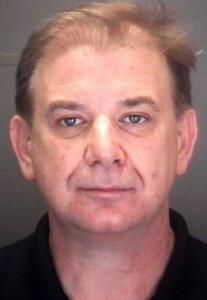Lawyers battled in Richmond federal court on Monday over how much time local developer Billy G. Jefferson Jr. may face in prison for a tax credit scheme.
And after nine hours of arguments, not much changed.
Judge John A. Gibney denied a request from Jefferson that sought to make changes to a presentencing report his legal team had hoped could lighten his criminal sentence, set to be decided later this month.
The judge’s ruling held in place the potential for an increase in Jefferson’s sentence due to obstruction of justice. The decision also denied a potential sentence reduction that Jefferson’s lawyers argued should be considered because he has accepted responsibility for his crimes.
The presentencing report, which is sealed, includes a sentence suggestion based on a federal sentencing guideline point system. The judge still has discretion on how to rule, despite the guidelines.
The obstruction of justice claim stems from allegations that Jefferson has been spending or concealing assets that could have been used to pay down a restitution requirement of more than $9 million.
Prosecutors said Jefferson had built up more than $2.5 million in liquid assets that couldn’t be accounted for through hundreds of ATM and over-the-counter withdrawals, checks made out to cash and a trio of Las Vegas gambling trips last year.
The defense contended that Jefferson could have gambled or spent all of the unaccounted-for funds in Vegas and used cash to cover expenses at home.
The defense argued that while Jefferson’s conduct, including high-rolling in Las Vegas in the months leading up to pleading guilty to federal felony charges, may have been upsetting to investigators, it was not necessarily illegal.
They argued that Jefferson believed he would be able satisfy his restitution by selling his massive real estate holdings, and any unrestrained liquid assets he took on his pre-plea Las Vegas trips wouldn’t be required to cover that restitution amount.
“Perhaps it was in poor taste, perhaps he wouldn’t do it again,” Williams Mullen attorney Chuck James said. “But at the time he did it, it wasn’t to obstruct justice.”
Gibney ruled against Jefferson without hearing a final argument from the prosecution. The judge said the presentence report would stand as written despite the defense’s objections. He also reiterated that he might go over the report’s suggested sentence range.
In August, Gibney filed a notice that “he will consider sentencing Mr. Jefferson above the guideline range, up to the statutory maximum.” The maximum combined sentence for Jefferson’s four guilty pleas – two from a December plea hearing and two more from a later plea hearing in June – is 37 years.
In court Tuesday, Gibney did credit Jefferson for beginning to pay down his restitution and said he will consider the payments in his final sentencing decision. Jefferson has paid nearly $2 million in restitution and forfeitures.
“If I could put it in a frame in a dollar bill, that’s the first dollar anyone has paid in restitution in a case,” Gibney said.
Lawyers battled in Richmond federal court on Monday over how much time local developer Billy G. Jefferson Jr. may face in prison for a tax credit scheme.
And after nine hours of arguments, not much changed.
Judge John A. Gibney denied a request from Jefferson that sought to make changes to a presentencing report his legal team had hoped could lighten his criminal sentence, set to be decided later this month.
The judge’s ruling held in place the potential for an increase in Jefferson’s sentence due to obstruction of justice. The decision also denied a potential sentence reduction that Jefferson’s lawyers argued should be considered because he has accepted responsibility for his crimes.
The presentencing report, which is sealed, includes a sentence suggestion based on a federal sentencing guideline point system. The judge still has discretion on how to rule, despite the guidelines.
The obstruction of justice claim stems from allegations that Jefferson has been spending or concealing assets that could have been used to pay down a restitution requirement of more than $9 million.
Prosecutors said Jefferson had built up more than $2.5 million in liquid assets that couldn’t be accounted for through hundreds of ATM and over-the-counter withdrawals, checks made out to cash and a trio of Las Vegas gambling trips last year.
The defense contended that Jefferson could have gambled or spent all of the unaccounted-for funds in Vegas and used cash to cover expenses at home.
The defense argued that while Jefferson’s conduct, including high-rolling in Las Vegas in the months leading up to pleading guilty to federal felony charges, may have been upsetting to investigators, it was not necessarily illegal.
They argued that Jefferson believed he would be able satisfy his restitution by selling his massive real estate holdings, and any unrestrained liquid assets he took on his pre-plea Las Vegas trips wouldn’t be required to cover that restitution amount.
“Perhaps it was in poor taste, perhaps he wouldn’t do it again,” Williams Mullen attorney Chuck James said. “But at the time he did it, it wasn’t to obstruct justice.”
Gibney ruled against Jefferson without hearing a final argument from the prosecution. The judge said the presentence report would stand as written despite the defense’s objections. He also reiterated that he might go over the report’s suggested sentence range.
In August, Gibney filed a notice that “he will consider sentencing Mr. Jefferson above the guideline range, up to the statutory maximum.” The maximum combined sentence for Jefferson’s four guilty pleas – two from a December plea hearing and two more from a later plea hearing in June – is 37 years.
In court Tuesday, Gibney did credit Jefferson for beginning to pay down his restitution and said he will consider the payments in his final sentencing decision. Jefferson has paid nearly $2 million in restitution and forfeitures.
“If I could put it in a frame in a dollar bill, that’s the first dollar anyone has paid in restitution in a case,” Gibney said.



